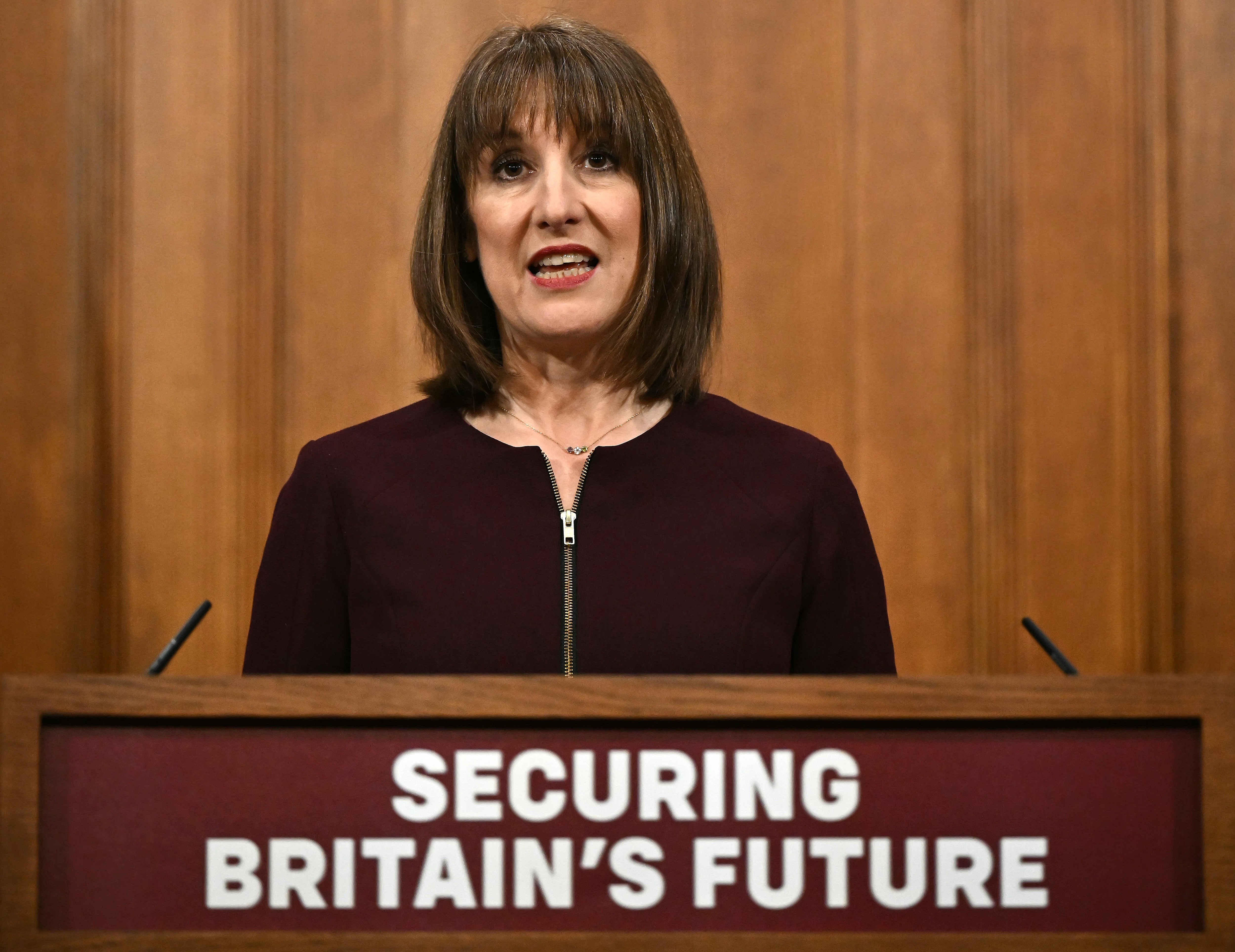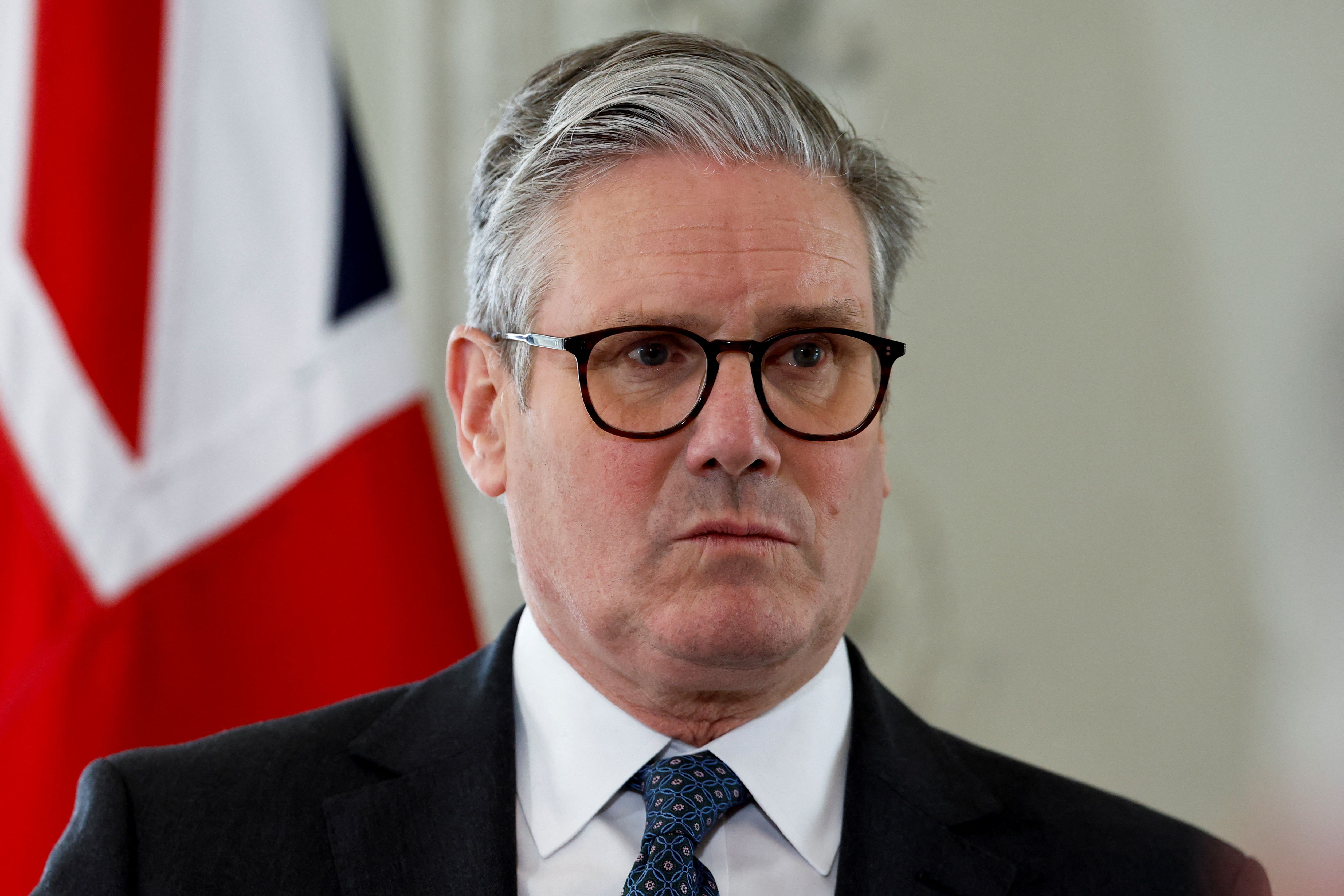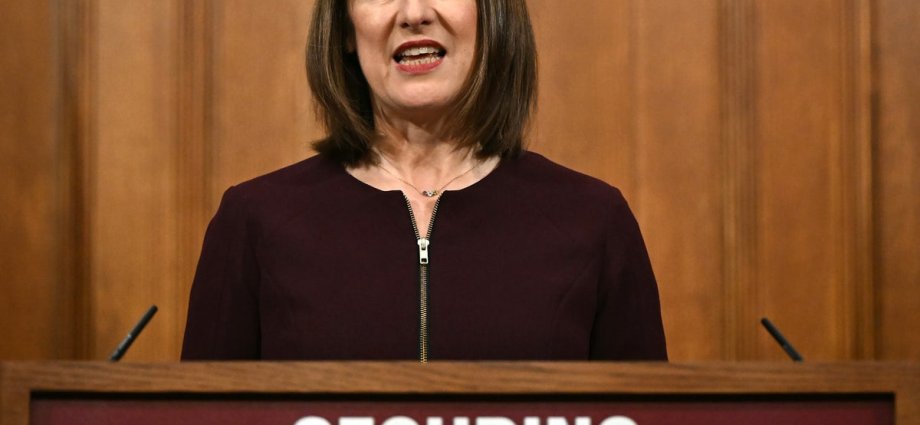Pensioners and the wealthy could face a shock tax raid by Rachel Reeves at the autumn Budget if the worsening economic forecast fails to improve, leading economists have warned.
Paul Johnson, the director of the highly respected Institute for Fiscal Studies (IFS) think tank, raised concerns in his post-spring-statement briefing that the chancellor has not left herself enough headroom in the public finances to withstand challenges in the economy.
In particular, the threat of Donald Trump imposing wide-ranging trade tariffs on top of the 25 per cent he announced on car imports on Thursday has raised the possibility that Ms Reeves could be left with a black hole.
Mr Johnson warned that the chancellor had left herself exposed to minor forecast changes and that there was a “good chance” she would need to raise taxes in October. “That risks months of speculation over what those tax rises might be – a raid on pensions, a wealth tax on the richest, another hike to capital gains tax?”

Mr Johnson said he was concerned that pensions “look like a juicy place to go for a lot of money”. He also warned that “mere speculation about increases can cause economic harm”.
The economist’s suggestion of a wealth tax would help Ms Reeves to appease rising anger among Labour MPs and trade unions over the £4.8bn in welfare cuts she announced in her statement, amid warnings that her measures will leave the poorest £500 worse off instead of putting an extra £500 in people’s pockets.
Such was the political anger over the impact of benefit cuts and the loss of money for carers that work and pensions minister Stephen Timms was forced to answer an urgent question in the Commons on the matter on Thursday.
MPs on the left of the Labour Party have joined with the unions in calling for a specific wealth tax to balance the books, rather than the burden being placed on the backs of the poorest in society. But speaking at a press conference in Paris, prime minister Sir Keir Starmer resisted the suggestion of future taxes, though he did not rule them out completely.
Sir Keir said: “We haven’t raised tax in the spring statement, and I think in every press conference I did before yesterday, the challenge to me was ‘You’re going to have to raise taxes in the spring statement, aren’t you?’ and I said, ‘Wait for the spring statement.’ We got the spring statement, and we haven’t.”
He pointed out that Labour had promised during the election campaign not to raise income tax, VAT or employee national insurance contributions, and had so far not done so.
“We have kept good to those promises,” he said. “Obviously I am not going to write future Budgets – every prime minister and chancellor has taken that position – but if you look at the fact that we haven’t raised taxes, that indicates the mindset we bring to this.”
The warning over a potential tax raid came as Mr Trump announced he was imposing 25 per cent tariffs on cars imported into the US, with the threat of more tariffs yet to come. The Office for Budget Responsibility has already warned that US tariffs could wipe out the £10bn headroom Ms Reeves left herself in the spring statement.
And with doubts growing over Ms Reeves’s plans, former Tory chancellor Ken Clarke also suggested that the chancellor would have to raise either income tax or VAT in October.
He told Times Radio he would have increased VAT on Wednesday, adding: “I think she’s got to go for value added tax, or some levels of income tax, in the autumn – probably VAT.”
The IFS also warned that new official data showed a dramatic decline in living standards over the past year.

In the 12 months to March last year, real average household income fell by 2 per cent, the think tank said, which indicated that there had been no growth in incomes since 2016.
Ms Reeves denied there would be further tax rises or spending cuts at the Budget in the autumn, but stopped short of ruling them out entirely. Asked if she would have to return with more cuts or tax rises, she said: “No.” But pressed on whether she could rule out such measures, she replied: “What I’m saying is that there are loads of things that this government are doing that are contributing to growth.”
Meanwhile, the backlash was growing against Ms Reeves’s decision to slash welfare, as she disputed the findings of the government’s own impact assessment, which said it would put 250,000 more people into poverty including 50,000 children.
Think tank the Resolution Foundation claimed: “The combination of a weak economic outlook and benefit cuts that fall disproportionately on lower-income families means that living standards are on track to fall over the next five years for the poorest half of households by £500 on average, according to the Resolution Foundation’s overnight analysis of [the] spring statement 2025.”
However, Ms Reeves told Sky News: “I am absolutely certain that our reforms, instead of pushing people into poverty, are going to get people into work. And we know that if you move from welfare into work, you are much less likely to be in poverty.
“That is our ambition, making people better off, not making people worse off, and also the welfare state will always be there for people who genuinely need it.”
Separate figures published on Thursday showed a new record high in the number of children living in poverty in the UK.
Data published by the Department for Work and Pensions showed that 4.45 million children were estimated to be living in households with relative low income, after housing costs, in the year to March 2024 – up from 4.33 million the previous year, and the highest figure since comparable records for the UK began in 2002/03.











